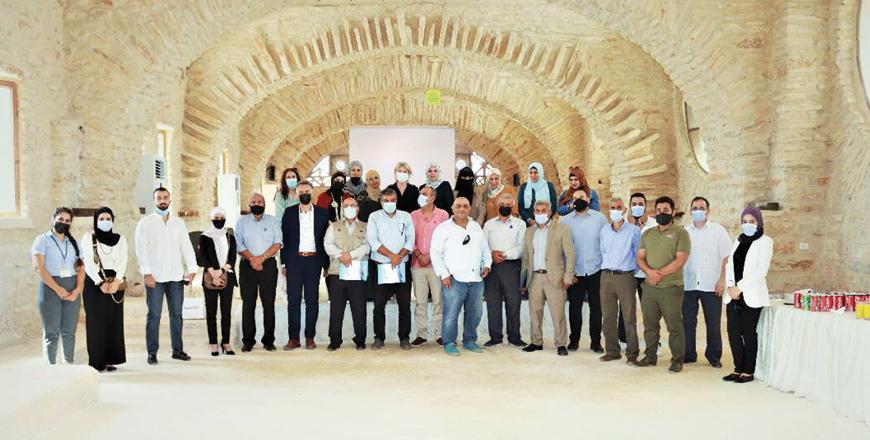- Local News
- Web-2021-07-28 | 02:18 pm

Nayrouz News Agency :
The World Heritage Committee of the United Nations Educational, Scientific and Cultural Organisation (UNESCO) decided, during its 44th session, which was held virtually in China, to approve the listing of the city of Salt as "the city of tolerance and civilised hospitality" on the World Heritage List.
In participation in the committee’s virtual meetings, Minister of Tourism and Antiques Nayef Al Fayez said that Salt city has always been among the top priorities of the Kingdom, given its atmosphere of tolerance, social solidarity and coexistence.
Through this event, Fayez added that Jordan and the World Heritage Committee are sending an important message to the whole world: A message of peace, tolerance and coexistence in line with His Majesty King Abdullah’s speech at the 2019 International Conference of Cohesive Societies in Singapore.” During the conference, His Majesty stressed that the world urgently needs to tackle "the world’s single most important threat — the attack on interfaith harmony, mutual respect and trust”.
Fayez highlighted that Salt’s nomination was first submitted in 1995, then later in 2017 and finally in 2021, which indicates Jordan’s commitment to protect and sustain outstanding global values and attributes of authority.
Fayez also expressed his appreciation of the World Heritage Committee and the staff of the World Heritage Centre, as well as the technical advisory bodies, and the International Council on World Heritage (ICOMOS) for their support throughout the nomination process.
Acting Director of the Department of Antiquities Hisham Al Abadi stressed that the inclusion of six archaeological sites on the World Heritage List will enhance Jordan’s position on the world tourism map. He pointed out that the department is seeking to nominate many archaeological sites in Jordan and submit their files to the Heritage Committee.
"The inscription of Salt on the World Heritage List will demonstrate the significance of the city of Salt, not only on the national level but also on the international level,” Makram Quaisi, Jordan’s ambassador in France, told The Jordan Times.
Quaisi added that the inscription will help preserve "the unique character” of the city, including its buildings, alleys and famous steps "Salalem”.
"More specifically”, he stated, "the outstanding universal value of Salt will now be protected by the 1972 World Heritage Convention.”
This recognition serves as an important reminder of cultural heritage and historic preservation and also serves as a great motivation for local and international tourism, the ambassador said.
The nomination of Salt is a national pride and Jordan is committed to protecting the city and ensuring its "unique legacy” can be passed on to future generations, Quaisi said.
"As such, this inscription represents the beginning of an exciting journey to ensure that this site continues to be a beacon of diversity and understanding, and to truly retain its well-deserved outstanding universal value,” Quaisi added.
Architect Lina Abu Salim, who works with a team behind the Salt city development project, said that while a local team under the supervision of the Royal Committee for Developing the City of Salt worked on this file, ICOMOS also provided technical support.
"ICOMOS Jordan, which was recently established, has provided support for the Salt file. The committee provides technical assistance in making decisions for new sites that are either nominated or inscribed on UNESCO’s World Heritage List, without interfering in the decision-making,” Salim told The Jordan Times.
The nomination of Salt is the first urban city in Jordan that has been nominated to the World Heritage List. Other Jordanian sites that are listed include Petra Archaeological Park, Qusair Amra, Umm Al Rassas (all three as archeological sites), Wadi Rum as a natural heritage site and the Baptism Site of Jesus Christ in Bethany Beyond the Jordan.









